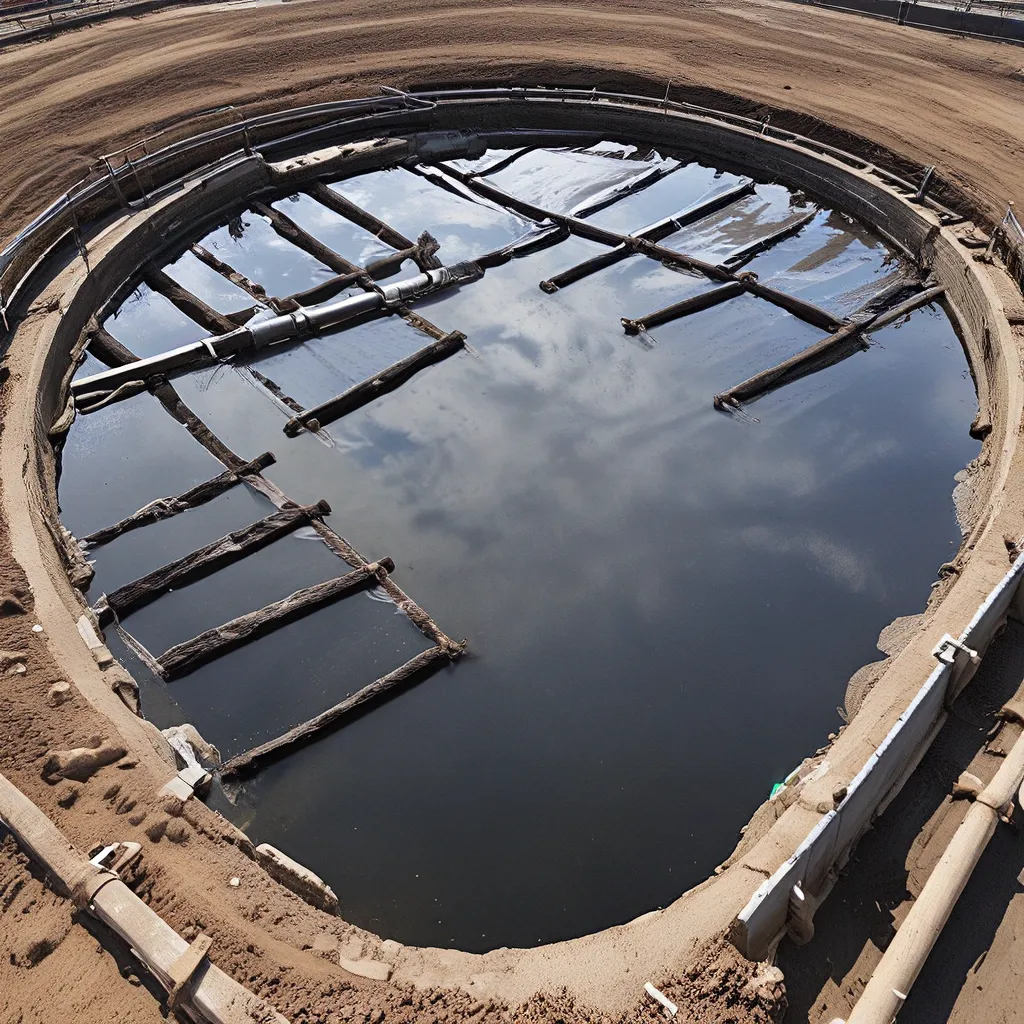
As the world grapples with the pressing challenges of environmental sustainability, the treatment and management of wastewater have emerged as critical battlegrounds. In this article, I’ll take you on a journey through the fascinating world of wastewater treatment, where innovative technologies and strategies are transforming how we view and utilize this once-overlooked resource.
Rethinking Wastewater: From Waste to Wealth
For far too long, wastewater has been seen as a mere byproduct, a necessary evil to be disposed of as efficiently as possible. But what if I told you that this so-called “waste” is brimming with untapped potential? Cutting-edge research has shown that wastewater is a treasure trove of valuable resources, from nutrients and energy to clean water. And the good news is that we have the technology and the know-how to transform this potential into reality.
One of the most exciting developments in the world of wastewater treatment is the concept of resource recovery. Instead of simply treating wastewater and then discarding it, forward-thinking facilities are now focusing on extracting and repurposing the valuable components within. This includes recovering nutrients like nitrogen and phosphorus, which can be used as fertilizers, as well as extracting energy in the form of biogas or even biofuels.
The Water-Energy-Nutrient Nexus
The interconnectedness of water, energy, and nutrients is a fundamental aspect of sustainable wastewater management. Water is essential for life, but it also requires a significant amount of energy to treat and distribute. Conversely, the production of energy often requires large amounts of water. And both water and energy are inextricably linked to the availability of nutrients, which are crucial for agricultural productivity.
By embracing a holistic, nexus-based approach, wastewater treatment plants can unlock remarkable synergies. For example, the anaerobic digestion of organic matter in wastewater can produce biogas, which can then be used to generate electricity or heat. This not only reduces the facility’s energy costs but also contributes to the overall sustainability of the operation.
Innovative Technologies for Wastewater Transformation
The journey towards a more sustainable wastewater management system is paved with technological advancements. From membrane bioreactors that enhance water purification to advanced oxidation processes that break down persistent pollutants, the toolbox of wastewater treatment is constantly expanding.
One particularly fascinating technology is electrochemical oxidation, which uses electrical current to degrade organic matter and remove contaminants from wastewater. This approach is not only highly effective but also energy-efficient and environmentally friendly, as it doesn’t require the addition of chemicals.
Another innovative solution is the use of constructed wetlands, which leverage the natural purification power of aquatic plants and microorganisms to treat wastewater. These nature-based systems are not only cost-effective but also provide valuable ecosystem services, such as habitat creation and carbon sequestration.
As we continue to push the boundaries of wastewater treatment, I’m excited to see what the future holds. Personalized home-based systems, nano-engineered membranes, and AI-powered optimization are just a few of the tantalizing possibilities that researchers are exploring.
Overcoming Barriers: Challenges and Opportunities
Of course, the transition to a more sustainable wastewater management paradigm is not without its challenges. Regulatory frameworks, infrastructure limitations, and public perception can all pose significant hurdles. But I believe that with a combination of innovative thinking, collaborative efforts, and a commitment to sustainability, we can overcome these obstacles.
One of the key challenges is the need to shift the mindset from viewing wastewater as a waste to seeing it as a valuable resource. This requires extensive public education and engagement, as well as the support of policymakers and industry leaders.
Another challenge is the need for significant investment in infrastructure upgrades and technological advancements. While the long-term benefits of sustainable wastewater management are clear, the upfront costs can be daunting. Innovative financing models, public-private partnerships, and government incentives can all play a role in addressing this challenge.
Despite these hurdles, I’m optimistic about the future of wastewater treatment. The potential benefits are too significant to ignore, and I believe that with the right strategies and a concerted effort, we can transform the way we manage this vital resource.
A Call to Action: Embracing the Sustainable Wastewater Revolution
As an individual, you may be wondering, “What can I do to contribute to this sustainable wastewater revolution?” The good news is that there are plenty of ways to get involved, from advocating for policy changes to supporting local wastewater treatment facilities.
One of the most impactful things you can do is to educate yourself and others about the importance of sustainable wastewater management. Spread the word, engage with your local government, and encourage your community to embrace the transformative potential of this often-overlooked resource.
And if you’re in the market for wastewater treatment services, I encourage you to explore the offerings of Alpha Wastewater. Their team of experts is committed to leveraging the latest technologies and strategies to transform wastewater into a valuable resource, and they’re always happy to share their insights and expertise.
Together, we can redefine the way we think about and manage wastewater, creating a more sustainable future for ourselves and generations to come. So let’s roll up our sleeves, dive into the fascinating world of wastewater treatment, and be part of the solution.